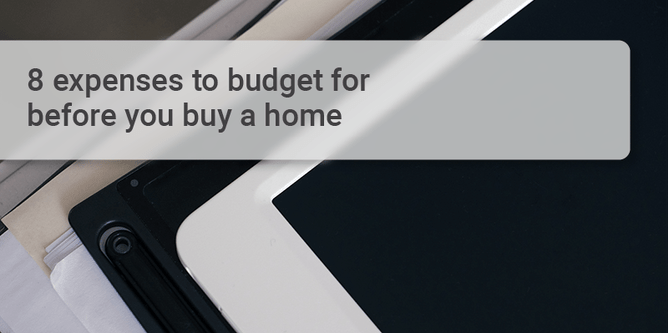Buying your dream home can come with a list of costs that do not have to be a nightmare if you plan in advance and budget for them.
These expenses can add up. Sometimes, it can feel like someone always has a hand in your pocket. Some costs, such as stamp duty, are unavoidable, but don’t resist paying for legal advice and building inspections. Mistakes in these areas can cost far more than you’ll save.
Here are some expenses to budget for:
1. Building and Pest Inspections
These are not mandatory unless your lender insists on them. However, you’d be crazy not to undertake building and pest inspections to ensure you’re not buying the neighbourhood money pit. The foundations and structure must be sound and free of termites. Typically, building inspections cost around $500 each or check out new technology offerings like Before You Bid where you can purchase existing reports that have been created for the property by other buyers.
2. Lender upfront fees
There are a lot of lenders with low or no upfront fees. Don't shy away from a lender with upfront fees if the rate is worth it though. Good mortgage brokers will compare both rates and fees to make sure you are getting the best deal with both these factors, and more, considered. They can also usually be included in the loan amount.
3. Lenders Mortgage Insurance
Banks insist on it for their protection – and it can be a heavy slug. Effectively, you’re insuring the lender against you defaulting on your loan. This is usually charged if you need to borrow more than 80% of the property value. There are some special exceptions or deals for certain borrowers that a broker will know about. Don't be afraid to pay Lenders Mortgage Insurance if it can stop you paying rent to someone else and enable you to start building equity in your own home. This can also usually be added to the loan amount.
4. Legal fees
Paying a Conveyancer or Solicitor to oversee the legal and contract side is a must. There might be some so-called DIY options, but the slightest error could cost you heavily so a Conveyancer or Solicitor is a good investment. Make sure you keep enough savings to cover these fees.
5. Stamp duty
State governments currently offer discounts for First Home Buyers. Otherwise, expect your stamp duty to be a hefty fee. The levy is based on the purchase price. There are some online stamp duty calculators to help you work out how much you’re up for, otherwise we will be able to calculate this for you.
6. General insurances
The moment the house becomes your property, the pre-existing insurance cover will cease. So, make sure you have arranged for building insurance ideally before the exchange of contracts. If you are buying a strata property this may be part of the strata. Check this with the strata body to confirm. Insuring your contents is also a good idea.
7. Moving and furniture costs
Depending on the amount of furniture you already have you may need to hire a truck or employ a moving company to help you with the move, which can be a significant cost. You may also need to buy new furniture to fill your new home. Consider keeping some funds out of your deposit to leave enough for these costs.
8. Additional costs
Connecting your home to services such as gas, electricity and the internet also hit the bottom line. Ask your real estate agent if they offer a connection service, or use an online site to get everything sorted at once and see if you can get a good deal.
This article is provided for general information only and does not take into account the specific needs, objectives or circumstances of the reader. Before acting on any information, you should consider whether it is appropriate for your personal circumstances, carry out your own research and seek professional advice.


